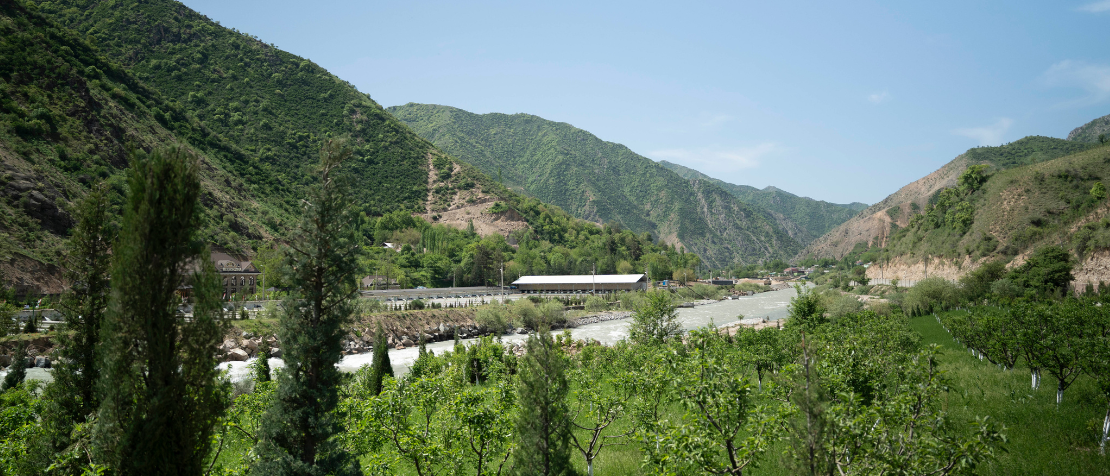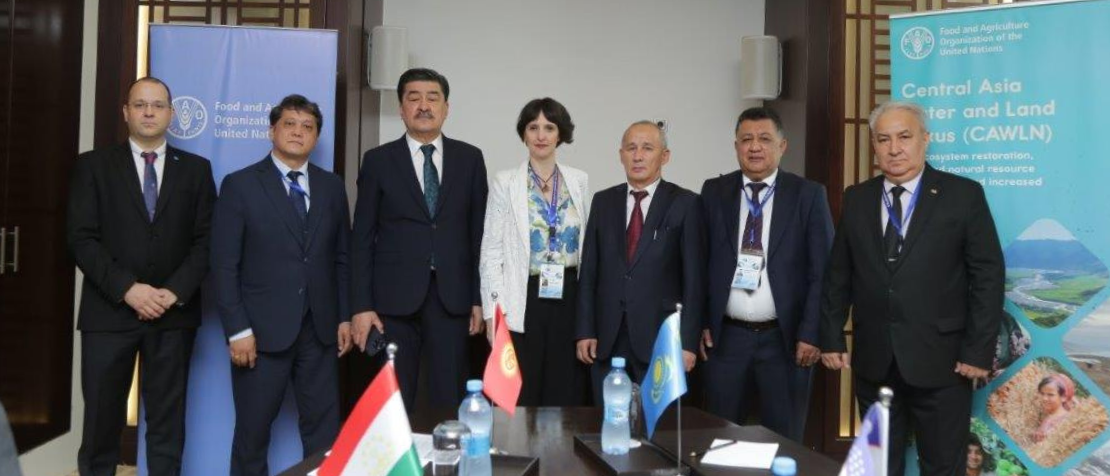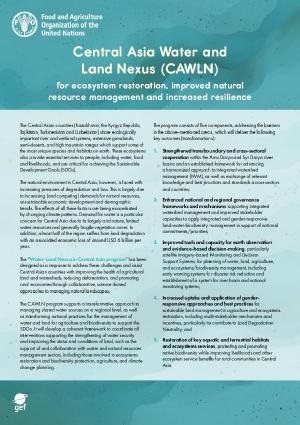Central Asian countries unite for sustainable water and land management

©FAO/Aziz Sattori
Central Asia, home to ecologically important river and wetland systems, extensive grasslands, and high mountain ranges that support unique biodiversity, faces escalating pressures. The region is particularly vulnerable due to its arid nature, increasing demands for natural resources, unsustainable development, and changing climate patterns, which contribute to an estimated USD 6 billion in annual economic losses related to land degradation alone.
In response, five Central Asian countries – Kazakhstan, Kyrgyz Republic, Tajikistan, Turkmenistan, and Uzbekistan – are supporting the development of the Central Asia Water-Land Nexus (CAWLN) programme. This collaborative effort marks a pivotal step towards building regional resilience and ensuring the sustainable future of vital natural resources for people and the planet.
The CAWLN programme, supported by the Global Environment Facility (GEF) and implemented by the Food and Agriculture Organization of the United Nations (FAO), will develop a coherent and science-driven framework to coordinate all interventions supporting the strengthening of water security, improving agricultural land health, reducing deforestation, and promoting rural economies.
Carolina Starr, FAO Agricultural Officer and the Lead Technical Officer for the programme, said, “FAO has been supporting the countries in Central Asia in their efforts to improve sustainable natural resources management, through integrated watershed management, increasing resilience in rural communities and strengthening livelihoods. The CAWLN programme will increase the coordination and cooperation among the Central Asia counties on natural resources management while promoting ecosystem services and livelihoods”.
A programmatic approach is crucial to improve the coordination of policy, regulations, and decision-making in water and land management, both within and between countries. Consequently, the comprehensive programme comprises seven projects, including two crucial regional projects covering the major Amu Darya and Syr Darya river basins, four national projects designed to address unsustainable land and water practices at the country level, and a programme coordination project to promote policy alignment, facilitate knowledge sharing, and scale up best practices across borders. Subregional and national activities will therefore take place under the umbrella of this overarching regional programmatic approach.
The programme will have a transformative impact through strengthened transboundary cooperation, enhanced national and regional governance, and the development of cutting-edge tools like satellite imagery-based Monitoring and Decision Support Systems for evidence-based planning. It will also foster the increased uptake of gender-responsive approaches and best practices for sustainable land management and the restoration of vital aquatic and terrestrial habitats, directly improving livelihoods for rural communities.
The high-level event in support of the CAWLN programme, held in Dushanbe, Tajikistan, brought together the Ministers and senior decision makers from the five participating countries. Yerlan Nyssanbayev, Minister for Ecology and Natural Resources of Kazakhstan; Meder Mashiev, Minister of Natural Resources, Ecology and Technical Supervision of the Kyrgyz Republic; Umed Ulugov, Director of the National Stockholm Center of the Committee of Environmental Protection under the Government of the Republic of Tajikistan; Magtymguly Akmyradov, Deputy Head of International Organizations Department in the Ministry of Foreign Affairs of Turkmenistan and Gayrat Mukhammedov, Director of the Center for State Environmental Expertise of the Republic of Uzbekistan came together to confirm their strong political will and prioritization of addressing the region's interconnected environmental challenges as well as to express their commitment to the CAWLN programme, the full implementation of which is expected to commence in the coming months.

© Aziz Nurullaev

